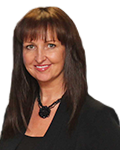04
Feb
2020
17:00
GMT
Webinar
Advancing Syncope Diagnosis: Practical Application of the 2018 ESC Syncope Guidelines
-
Views:
 611
611
-
Likes:
 2
2
Overview
This webinar aims to provide healthcare professionals with practical implementation guidance on the diagnosis of syncope patients and follow-up care based on the 2018 ESC Syncope Guidelines.
Faculty:

Jayne Mudd

Jean-Claude Deharo

Rose Anne Kenny
This webinar is supported by

Key Learning Objectives
- increase knowledge and competence around managing the syncope patient, according to 2018 ESC guidelines on syncope.
- understand practical implementation strategies of the guidelines.
- apply guideline diagnostic measures for syncope care.
- make diagnostic and cost-effective decisions to determine the cause of syncopal episodes.
Target Audience
- Cardiologists and electrophysiologists
- Internal medical professionals/primary care
- Emergency physicians/nurses
- Geriatricians
Faculty Biographies

Jayne Mudd
Mrs. Jayne Mudd is a nurse consultant in Cardiac Rhythm Management at the James Cook University Hospital in Middlesbrough, UK. Since being appointed as a specialist nurse in arrhythmia management in 1999, Jayne has led a team of nurses that specialize in arrhythmia and syncope management and is lead-nurse in arrhythmia and syncope services across the community and in tertiary settings. Her team has led many innovative projects which have been recognized with several national awards.

Jean-Claude Deharo
Prof. Jean-Claude Deharo is cardiologist/electrophysiologist at the Hospital Timone in Marseille, France and professor of cardiology at Marseilles Medical School. He has been involved in various ESC and EHRA guidelines and consensus documents, including the 2018 ESC syncope guidelines. He has particular interest in cardiac electrophysiology research in the fields of syncope, lead extraction and clinical electrophysiology.

Rose Anne Kenny
Prof. Rose Anne Kenny is founding director of the Falls and Syncope Unit at St. James's Hospital and Trinity College Dublin, IE, head of the Ageing Research Program at Trinity College Dublin, director of the Mercers Institute and holds the Chair of Medical Gerontology. She was task force member of the 2018 ESC guidelines for the diagnosis and management of syncope.
Key References
1. Brignole M, Vardas P, Hoffman E, et al. Indications for the use of diagnostic implantable and external ECG loop recorders. Europace 2009;11:671–687.
2. Brignole M, Moya A, de Lange FJ, et al. 2018 ESC Guidelines for the diagnosis and management of syncope. Eur Heart J. 2018; 1-69.
3. Da Costa A, Defaye P, Romeyer-Bouchard C, et al. Clinical impact of the implantable loop recorder in patients with isolated syncope, bundle branch block and negative workup: a randomized multicentre prospective study. Arch Cardiovasc Dis 2013;106:146–154.
4. Edvardsson N, Garutti C, Rieger G, Linker NJ, PICTURE Study Investigators. Unexplained syncope: implications of age and gender on patient characteristics and evaluation, the diagnostic yield of an implantable loop recorder, and the subsequent treatment. Clin Cardiol 2014;37:618–625.
5. Moore DE Jr, Green JS, Gallis HA. Achieving desired results and improved outcomes: integrating planning and ass essment throughout learning activities. J Contin Educ Health Prof. 2009 Winter;29(1):1-15.
6. Podoleanu C, DaCosta A, Defaye P,et al. Early use of an implantable loop recorder in syncope evaluation: a randomized study in the context of the French healthcare system (FRESHstudy). Arch Cardiovasc Dis 2014;107:546–552.
7. Sulke N, Sugihara C, Hong P, Patel N, Freemantle N. The benefit of a remotely monitored implantable loop recorder as a first line investigation in unexplained syncope: the EaSyAS II trial. Europace 2016;18:912–918.





